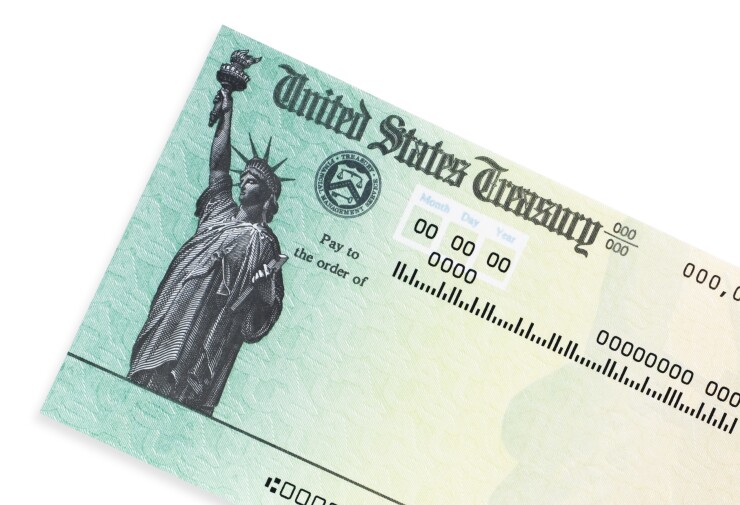The Treasury Department’s Financial Crimes Enforcement Network issued an
In one scheme, fraudsters are sending potential victims bogus checks, instructing the recipients to call a phone number or verify information online so they can cash the fraudulent checks. Victims are asked for their personal or bank account information under the ruse that the information is needed to receive or speed up their stimulus payment. The scammers then use the information they’ve obtained to commit various crimes, including identity theft and the unauthorized access of bank accounts.
In another scheme, the fraudsters deposit altered EIP checks, often through an ATM or a mobile device. The altered checks may modify the name of the payee, or leave the name on the check blank, and the amount may be changed prior to deposit. In some cases, the checks are chemically altered so the original payee name is removed.
The advisory was based on FinCEN’s analysis of COVID-19-related information it got from Bank Secrecy Act data, public reporting and its law enforcement partners.
The schemes come at a time when criminals are finding ways to exploit the various forms of COVID relief distributed by the Treasury, the Internal Revenue Service, the Small Business Administration, and state unemployment departments. In the rush to distribute relief quickly, few safeguards were initially in place to prevent criminals from siphoning off money from the billions of dollars in relief provided under the CARES Act and other laws passed by Congress.

Some criminals are outright stealing the Economic Impact Payments from intended recipients, exploiting the overburdened U.S. Postal Service, which has faced unprecedented challenges during the pandemic delivering the mail.
Some of the thefts reported by FinCEN can include individuals stealing a stimulus payment from the mail; requesting an EIP disbursal for an ineligible person, seeking someone else’s EIP without the payee’s knowledge or approval, or through “coercive means,” or using stolen personal information, including giving false bank account information to the IRS to claim another person’s payment.
The IRS has issued several warnings about
FinCEN is also seeing cases of inappropriate seizure of the payments: “A private company that may have control over a person’s finances or serves as his or her representative payee seizes a person’s EIP, for wage garnishments or debt collection, and does not return the inappropriately seized payments,” said the advisory.





